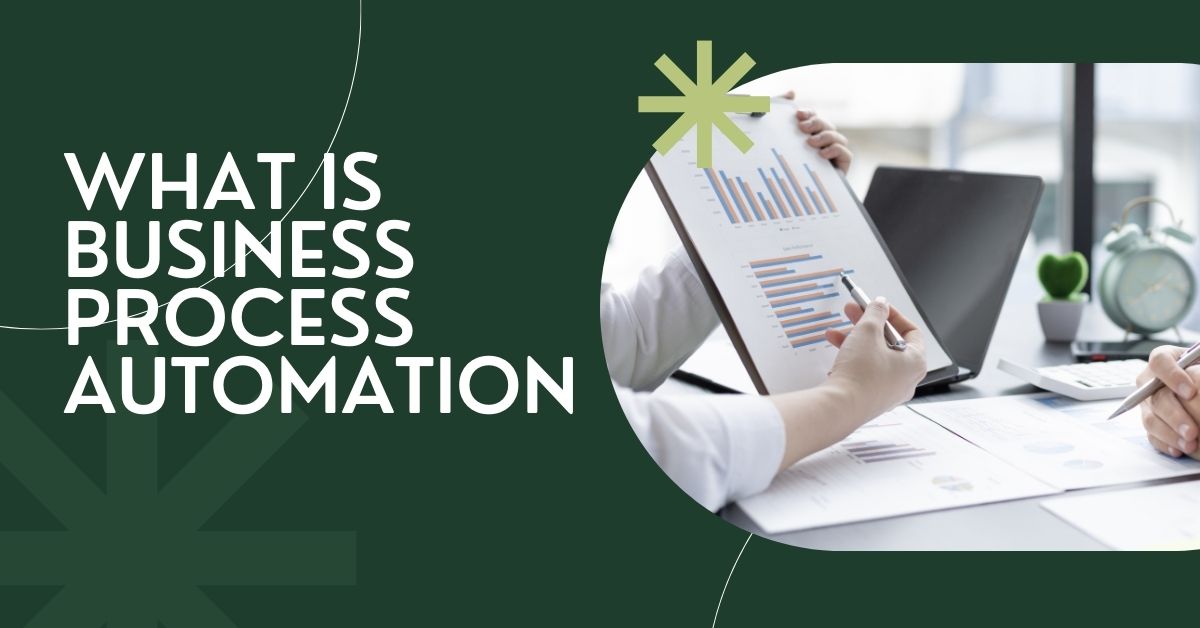19 Feb

The search for increased efficiency in business processes has always been the core focus of visionary business leaders. More often than not, businesses across the board look for innovative methods to achieve exponential growth.
Technology has actively complemented business progress in general, but the level of technological influence on business operations these days is truly unprecedented. The impact of evolving technology on business is not only a historical fact but has now become an undeniable reality.
More and more businesses are now looking for automation as a growth instrument. Not only as a complementary tactic to existing processes but truly an active strategy that injects maximum efficiency into the business cycle.
Even though deciding on implementing these new tech-driven processes can be quick, implementing these new changes can be a bit complex. Therefore, businesses must truly understand the detailed dynamics of Business Process Automation.
What is Business Process Automation?
In order to fully grasp the concept of Business Process Automation, it is essential to look at business processes and the concept of automation separately.
Business Processes
Business processes are set protocols that businesses define to run their day-to-day operations. Every business has its own unique set of processes that reflect its sector/niche. Other factors like the type of business and the style of management also influence the way these business processes are set in the first place.
No matter how varied these business processes are, every process is defined to work towards achieving the core business goals. Almost all the operational costs incurred by any business owe to these unique business processes. The efficiency level in these processes directly relates to the running costs of any business.
Ultimately, any Business Process Automation aims to streamline these processes to maximize efficiency without incurring additional costs. Innovation in these processes aims to cut costs rather than incur unwanted expenses.
What is Automation?
Automation is any technological adoption that minimizes human intervention. The aim of any automation drive is to increase efficiency by automating repetitive tasks and processes. Minimizing unnecessary human interaction aims to increase accuracy while cutting the cost of human resources.
Any automation requires proper utilization of computer systems and other machines to bring an innovative change in a legacy process. Traditional processes tend to be detailed with many human-level checks and balances, usually making them long and tedious. Automation allows for a smart way to restructure these processes by using specialized software and other machines when applicable.
The level of automation required usually depends on the following factors:
- The number of steps involved in the traditional process
- The issues or blockages that need to be addressed
- And the available solutions to successfully implement that automation
There is always a lot of thought process involved in finding the right automation solution. Many industry-specific considerations also come into play while choosing the right automation solution.
The process of applying an automation solution may be a bit overwhelming for some businesses, but the benefits of the right technology adoption are always worthwhile.
Use Cases of Business Process Automation
It is always a good idea to analyze some use cases of Business Process Automation before considering its implementation in a certain business environment. Case studies can be particularly helpful in identifying the right automation solution for the right business.
Robots and Manufacturing
The most illustrative use case of Business Process Automation is in the manufacturing sector, especially automotive manufacturing. Over the years the automotive industry all over the world has rapidly shifted to high-tech automotive manufacturing processes. The introduction of manufacturing robots has increased the productivity of the auto-manufacturing process manifold.
The results are reduced costs of the finished products with considerable quality improvements. These high-tech manufacturing robots are programmable autonomous machines that carry out highly precise and repeatable tasks.
With the continuing advancement in robotics, these automotive worker robots are getting smarter. Equipped with a range of high-tech sensors, these robots have the ability to produce very high-quality products in a very short span of time.
Blockchain and Logistics
Applications of blockchain technology are truly remarkable. Blockchain is basically a public ledger that uses strong cryptography to validate data and ensures decentralized availability using peer-to-peer technology.
The level of security, authentication, transparency, and availability provided by blockchain technology makes it a perfect automation tool for many businesses across a multitude of industries.
Businesses related to the logistics sector for example use blockchain to validate transactions between vendors and distributors without the need for any paperwork.
In this particular sector, blockchain allows businesses to log orders, shipment receipts, and shipment tracking, etc. Using smart contracts in blockchain also allows businesses to trigger autopayments on certain shipment receipts among other things.
Accounting for Small Businesses
Business Process Automation is always a very beneficial exercise. By applying different business-specific automation solutions, business leaders can effectively ensure the following key benefits for their respective businesses.
Accuracy
One of the most prominent and key benefits of Business Process Automation is accuracy. There is no automation without the productive use of computer systems. These computer systems allow businesses to make their processes very accurate. A direct consequence of using these accurate processes is also reflected in the collection and storage of accurate business data as well.
Productivity
Maintaining accuracy in business processes is the first step toward increased productivity. One of the key reasons for introducing automation in the first place is to reduce the time involved in long business processes. Business Process Automation helps in this regard by significantly reducing the time involved in certain business processes. This makes way for cost efficiency and ultimately increases productivity.
Transparency
Another very important yet understated benefit of Business Process Automation is transparency. Automating key business processes enables businesses to ensure a transparent flow of business information. This enables real-time access to key information, thus providing much-needed transparency to internal business data.
Collaboration
Outdated business processes always hamper collaboration. By leveraging the power of modern communication tools within certain business processes, automation allows internal and external teams to collaborate more effectively.
Profits/Revenue
There is no doubt that the whole process of Business Process Automation is driven by the urge to increase revenue and profits. By establishing highly efficient business processes, automation ultimately helps increase revenue and profits.
Competitive Advantage
Adopting the latest in technology is always a competitive advantage in business. Improved business processes will ultimately reflect on the quality of the products and services. This way, automating key business processes can be a way to ensure a fair competitive advantage as well.
Application of accounting software is the most common Business Process Automation across all industries and sectors. Using accounting solutions allows businesses to make bookkeeping accurate and simple. Accounting software also ensures transparency in financial data while minimizing human error.
Usually for small businesses, automating the accounting process is the first step in their Business Process Automation journey.
CRM and Sales
Another very common automation solution used by many businesses is Customer Relationship Management (CRM). Simply put, CRM software allows businesses to effectively streamline the process of handling leads.
CRM provides a variety of automated tools that work towards maximizing sales by utilizing a systematic approach. The primary goal of any CRM integration in businesses is to develop long-lasting relationships with customers or clients.
Choosing the Right Processes to Automate
To successfully implement Business Process Automation, it is essential to consider several factors that might influence a business’s success parameters. One of the most important decisions regarding business process transformation is finding the right processes to automate.
Businesses tend to be very careful when it comes to tinkering with established processes. Key decision-makers in any business realize that rapid changes can sometimes be counterproductive. Therefore, choosing the right process to automate becomes all the more important.
In order to identify the most requisite improvements, businesses need to consider the following systematic approach:
- Conducting a comprehensive business process audit
- Analyzing the audit report to pinpoint the right steps to revamp
- Looking at available solutions to incorporate
- Doing a detailed cost assessment of the proposed update
- Evaluating the long-term value of the proposed automation
Implementing Business Process Automation
The process of implementing automation for any business is far more complicated than it looks. Deciding on the right process to transform is one thing, but the process of solution implementation has its own challenges.
Therefore, it is vital for businesses to consider some key points before formally working on the transformation process.
- Making sure that the process under consideration and the proposed technology are a complete match
- Identifying the main hurdles to transition
- Creating new protocols associated with the change
- Outlining the correct operational cost projections
- Conducting a detailed study on the long-term impacts of the change
Conclusion
The correct use of technology can always be a great growth vector for any type of business. Choosing the right tech solutions will greatly augment business operations. Implementing the correct Business Process Automation can benefit businesses in many ways, resulting in increased profits and growth.
Besides deciding on incorporating automation solutions into business operations, business leaders should also consider the dynamics of correct implementation. Only a robust SWOT analysis coupled with clear goals can help businesses achieve timely milestones.
Related Post
Copyright © 2024 – Powered by uConnect


